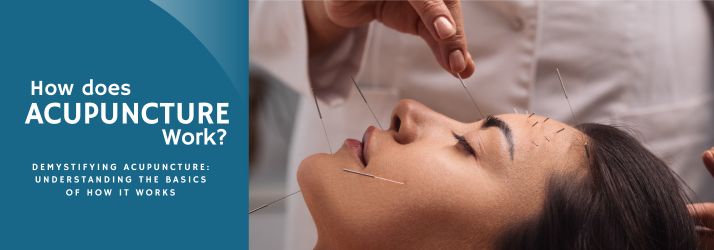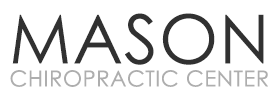How Does Acupuncture Work in CITY* STATE*?
How does acupuncture work?

Acupuncture, an integral part of Traditional Chinese Medicine, has been practiced for thousands of years and is widely recognized for its ability to treat various health conditions. Despite its ancient roots, acupuncture remains a popular choice for many people seeking alternative or complementary therapies. In this article, we will delve into the basic principles of acupuncture, exploring how it works and its underlying mechanisms, to provide a better understanding of this time-honored healing art.
The Fundamentals of Acupuncture
At its core, acupuncture involves the insertion of thin, sterile needles into specific points on the body, known as acupuncture points or acupoints. These points are located along pathways called meridians, which are believed to be channeled through which a vital life force, or "Qi" (pronounced "chee"), flows. According to Traditional Chinese Medicine, when the flow of Qi is disrupted or imbalanced, it can lead to various health issues. By stimulating acupoints, acupuncture aims to restore balance and promote the smooth flow of Qi, thereby improving overall health and well-being.
The Concept of Qi and Meridians
The idea of Qi and meridians is central to the practice of acupuncture. Qi is often described as a form of bioenergy that circulates throughout the body, maintaining health and vitality. Meridians are the channels through which Qi flows, connecting various organs and systems within the body. There are 12 primary meridians and several secondary meridians, each associated with specific organs and functions.
When the flow of Qi is disrupted, it can result in an imbalance that manifests as various health issues. By stimulating specific acupoints along the meridians, acupuncture seeks to restore the smooth flow of Qi and correct these imbalances, facilitating the body's natural healing processes.
The Western Perspective on Acupuncture
While the concept of Qi and meridians is central to Traditional Chinese Medicine, many Western practitioners and researchers have sought to understand acupuncture through a more contemporary, evidence-based lens. Several theories have been proposed to explain acupuncture's effectiveness, including:
- The Neurohormonal Theory: Acupuncture is believed to stimulate the release of certain neurotransmitters and hormones, such as endorphins, serotonin, and dopamine, which can help alleviate pain, improve mood, and promote relaxation.
- The Gate Control Theory of Pain: Acupuncture is thought to stimulate nerve fibers that transmit non-painful signals, effectively "closing the gate" on pain signals and reducing the perception of pain.
- The Anti-Inflammatory Effect: Acupuncture has been shown to have an anti-inflammatory effect by promoting the release of certain chemicals and hormones that help regulate the immune response and reduce inflammation.
The Integration of Eastern and Western Perspectives
Today, many acupuncture practitioners and researchers embrace a holistic approach that combines the traditional principles of Qi and meridians with modern scientific understanding. By integrating Eastern and Western perspectives, acupuncture practitioners can tailor their treatment protocols to individual needs, using a combination of ancient wisdom and contemporary research to optimize patient outcomes.
Acupuncture is a time-honored healing art with a rich history and a growing body of scientific research supporting its effectiveness in treating various health conditions. By understanding the basic principles of acupuncture, including the concepts of Qi and meridians, as well as the contemporary theories proposed by Western researchers, we can appreciate the intricate balance between ancient wisdom and modern science that underpins this powerful therapy. If you are considering acupuncture as a potential treatment option, consult with a licensed practitioner who can help determine if it is suitable for your specific needs. By embracing the holistic nature of acupuncture and its ability to promote balance and well-being, countless individuals can benefit from this time-tested approach to healthcare. As we continue to explore the fascinating mechanisms behind acupuncture, it is clear that the integration of ancient traditions and modern scientific knowledge can offer a comprehensive, effective, and personalized treatment strategy for a wide range of health issues. Embracing the wisdom and versatility of acupuncture can lead to improved health, well-being, and an enhanced quality of life for countless individuals in today's rapidly evolving healthcare landscape.
OFFICE HOURS
Monday
8:00am - 12:00pm
1:00pm - 6:00pm
Tuesday
8:00am - 6:00pm
Wednesday
8:00pm - 6:00pm
Thursday
8:00am - 6:00pm
Friday
8:00am - 6:00pm
Saturday & Sunday
Closed
CLINIC NAME*
ADDRESS*
CITY*, STATE* ZIP*
(000) 000-0000


